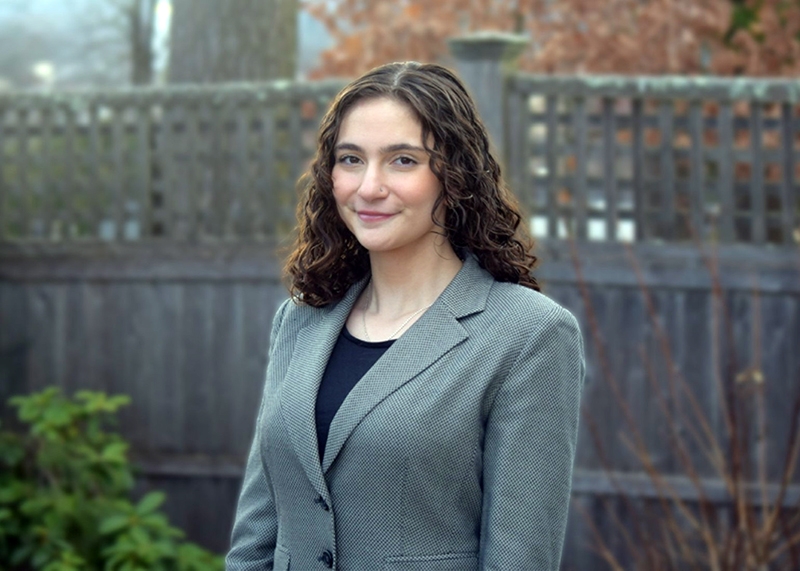Middlebury Graduate Awarded 2024 Watson Fellowship
Middlebury graduate Samara (Sam) Gordon Wexler has been named a Thomas J. Watson Fellow for the coming academic year. Watson fellows receive $40,000 for 12 months of self-designed travel and study on a topic of their choice.

Gordon Wexler, who completed her Middlebury degree in February, plans to explore how different countries and cultures practice end-of-life care in the hope of gaining a more expansive vision of what palliative care could be in the United States.
An English major who also completed the science courses required for medical school admission, Gordon Wexler plans to study pediatric medicine and public health after her fellowship.
“I am so excited and feel incredibly fortunate to be given the chance to travel for a year and explore the world on my own,” said Gordon Wexler, who set her study-abroad plans aside when the pandemic hit. “I am also very much looking forward to the people I will meet on my travels and inevitably learn a great deal from.”
Her exploration will begin in August in the United Kingdom, studying with End of Life UK, an organization that focuses on eliminating taboos surrounding death. The UK, she notes, receives the highest global rating for satisfaction at end of life. In November, she will travel to Basel, Switzerland, to work with Pegasos, an NGO that provides voluntary assisted dying services to clients from around the world. In February, she will embed with Pallium India, an NGO in Trivandrum, Kerala, that provides free pain relief and palliative care. Lastly, she will travel to Accra, Ghana, in May for the final segment of her year, where she will study and experience Ghanaian funeral rituals.
“I chose these countries because they all have innovative practices or attitudes toward the end of life, despite varying levels of financial and medical resources,” she said.
A self-described scientist and creative writer, Gordon Wexler says that studying both the humanities and sciences as an undergraduate helped her consider a career as a physician that incorporates the humanities into medicine.
“One of Sam’s most impressive characteristics is her ability to toggle between the humanities and the natural sciences,” said Hannah Benz, associate director of health professions and science advising. “Her academic preparation in both creative writing and the pre-health curriculum has made her singularly prepared to delve into an exploration of end-of-life care. Sam’s capacity to synthesize evidence-based information with empathy and humility will serve her immensely well as a future researcher and physician.”
Gordon Wexler, who is currently working in a hospital emergency department, has been thinking about how her fellowship might shape her career as a medical professional, noting “I expect this experience will begin to uncover how I can be a doctor who finds the unity between healing the person and the disease.”
For more information about the Watson and other fellowships, visit Middlebury’s Fellowships Office.

